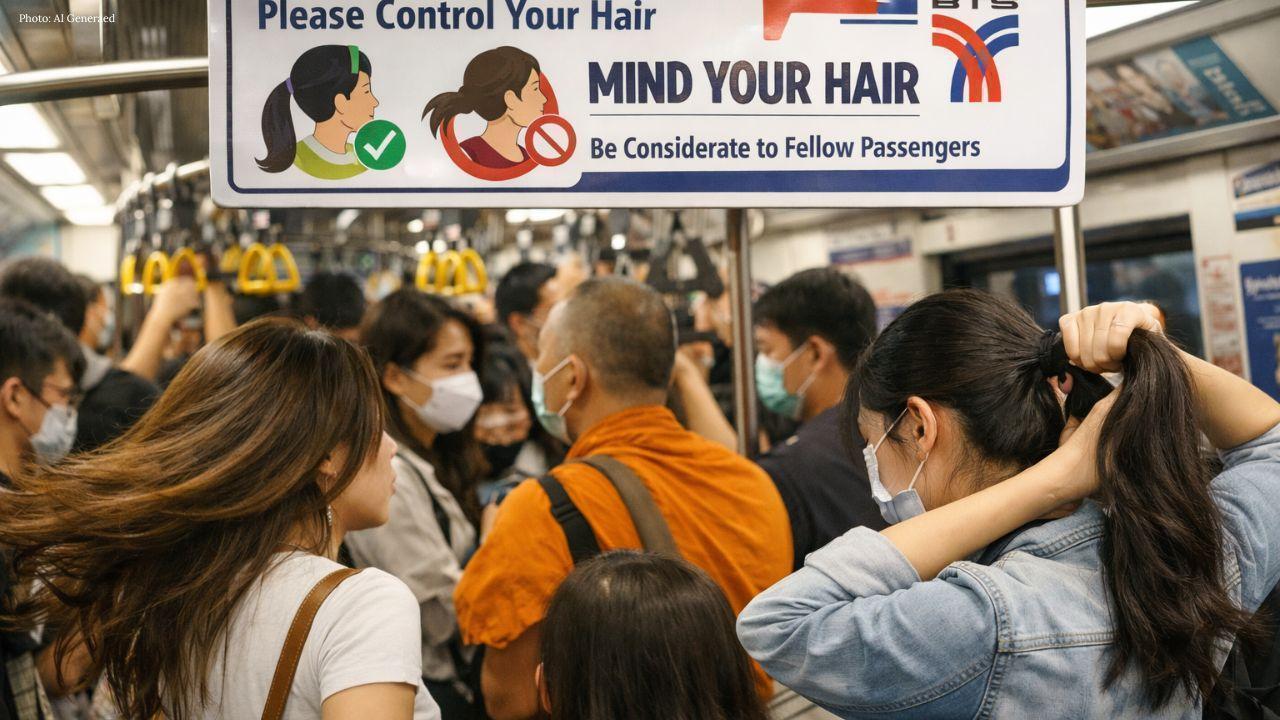You have not yet added any article to your bookmarks!

Join 10k+ people to get notified about new posts, news and tips.
Do not worry we don't spam!

Post by : Anis Farhan
Artificial Intelligence (AI) has gone from a futuristic concept to an everyday reality in just a few years. From chatbots assisting customer services to complex algorithms making financial decisions, AI is changing how societies function. However, one critical question is emerging globally: are our laws evolving fast enough to handle AI’s rapid growth? While industries adopt AI to improve productivity and innovation, policymakers across the world are struggling to draft regulations that safeguard society without stifling innovation. This widening gap between technology and legislation is becoming one of the defining policy challenges of our era.
The speed at which AI has developed is unprecedented. Generative AI, facial recognition, autonomous vehicles, and predictive algorithms have entered mainstream use far quicker than most experts predicted. Chatbots like GPT, automated hiring systems, and AI-driven medical diagnostics are changing industries overnight. While the benefits are obvious—improved efficiency, accessibility, and new economic opportunities—the risks are equally significant. Issues such as algorithmic bias, data privacy violations, and job displacement are sparking urgent debates. The pace of AI growth has created a scenario where technology is far ahead of regulatory frameworks, leaving societies vulnerable to unintended consequences.
Currently, there is no single global standard governing AI. Countries are taking different approaches to regulation. The European Union is leading with its landmark AI Act, aiming to regulate AI based on the level of risk associated with specific applications. Meanwhile, the United States is taking a more market-friendly, innovation-first approach with limited federal AI laws, though states like California are moving faster on digital rights. China has developed its own unique model, focusing on state control, surveillance regulation, and promoting domestic AI development. This fragmented approach globally creates regulatory inconsistencies, especially in areas like AI ethics, accountability, and privacy protections.
Policymakers are facing several core concerns when attempting to regulate AI:
Ethical Use of AI: Ensuring that AI systems are fair, unbiased, and transparent in decision-making.
Data Privacy: Managing how AI systems collect, use, and store personal data.
Accountability: Determining who is responsible when AI systems make harmful mistakes.
Job Displacement: Preparing for industries where AI may automate large segments of employment.
National Security: Addressing risks of AI in cybersecurity, misinformation, and military applications.
Balancing these priorities without hampering innovation is proving to be an uphill battle for lawmakers worldwide.
One major issue is the traditional pace of lawmaking. Drafting, debating, and passing legislation often takes years, but AI technologies evolve in months. By the time a law is passed, it risks becoming outdated. Furthermore, many lawmakers lack deep technical understanding of AI, making it harder to assess risks accurately or foresee future implications. Governments also face pressure from tech companies, lobbying to minimize regulation in the name of innovation. This slow legislative response risks creating legal loopholes and gray areas where AI can be misused without proper oversight.
Another major challenge in lawmaking is defining what counts as AI. The term encompasses a wide range of technologies, from simple automation tools to complex machine learning models. Legislators must decide whether to regulate AI broadly or target specific high-risk applications. Overly broad definitions risk unnecessary restrictions on harmless innovations, while narrow definitions can fail to address emerging dangers. The balance between clarity and flexibility in defining AI is critical for crafting effective legislation.
The European Union’s AI Act, introduced in 2021 and advancing through legislative approval, represents the first major comprehensive attempt to regulate AI. It classifies AI systems into four categories—unacceptable risk, high risk, limited risk, and minimal risk—and imposes stricter requirements on high-risk applications. These include transparency, human oversight, and rigorous testing before deployment. Critics argue the law may stifle innovation, especially for startups, but supporters say it offers a blueprint for ethical AI deployment worldwide. As the AI Act is finalized, many countries are closely watching its impact on technology markets and societal welfare.
In Asia, countries like Japan, Singapore, and South Korea are introducing AI governance frameworks focusing on responsible innovation. Singapore’s Model AI Governance Framework emphasizes transparency, explainability, and accountability in AI use. Japan is aligning AI ethics with its Society 5.0 vision, promoting human-centric AI development. Meanwhile, China is integrating AI regulation into its broader surveillance and governance model, restricting certain uses while accelerating AI development for economic and security purposes. Asia’s approaches reflect diverse political systems but share a common goal: managing AI growth without harming economic potential.
Public awareness of AI’s risks has grown, especially after high-profile incidents involving biased algorithms and data leaks. Consumer rights groups, labor unions, and civil society organizations are calling for stricter rules to ensure fairness, accountability, and transparency in AI systems. Movements advocating for “algorithmic justice” are gaining traction, pressing lawmakers to introduce rights such as the right to explanation (understanding why an AI made a decision) and the right to human oversight. These demands are pushing governments to act faster on AI governance.
Major tech companies are not just passive players; they are actively shaping AI regulation through lobbying, public statements, and even self-regulatory commitments. Companies like Google, Microsoft, and OpenAI have proposed AI safety principles and called for regulatory clarity. While this involvement brings valuable technical insight, it also raises concerns about corporate influence diluting consumer protections. The challenge for policymakers is to consult industry without letting corporate interests undermine public welfare.
While lack of regulation poses risks, overregulation carries dangers too. Excessive legal restrictions can slow down beneficial AI innovation, make compliance costs too high for startups, and push tech development into unregulated regions. An overly cautious approach could leave countries lagging behind in the global tech race, reducing competitiveness. Smart regulation, with flexible and adaptive frameworks, is necessary to protect society without discouraging technological progress.
To avoid stifling innovation, many governments are experimenting with regulatory sandboxes—controlled environments where companies can test AI applications under regulatory supervision. These sandboxes allow policymakers to learn about new technologies, assess risks in real time, and draft informed regulations. The UK, Singapore, and the UAE have introduced AI sandboxes, promoting safe innovation while preparing appropriate regulatory responses. This model may offer a practical path forward for agile AI governance.
AI’s borderless nature means fragmented national regulations create challenges for global companies. Many experts advocate for international AI governance standards similar to data protection laws like GDPR. Organizations like the OECD, UNESCO, and the UN have proposed ethical AI guidelines, but enforcement remains weak. Global cooperation is crucial to address cross-border issues like AI-driven misinformation, digital labor rights, and algorithmic discrimination, but achieving consensus among diverse political systems remains difficult.
The solution lies in adaptive regulation—laws that are flexible, continuously updated, and developed in consultation with a broad range of stakeholders. Transparency, public participation, and ongoing review processes will be critical in ensuring AI laws remain relevant. As AI technology will continue evolving rapidly, governments must equip themselves with specialized AI task forces, advisory councils, and data scientists to stay informed and act quickly when needed.
The AI era presents a defining test for modern governance. How lawmakers respond will determine whether societies enjoy the benefits of artificial intelligence while avoiding its pitfalls. The road ahead is complex—balancing innovation, ethics, safety, and human rights is no easy task. But with proactive, thoughtful, and inclusive policymaking, it is possible to build a future where AI serves humanity responsibly. Closing the gap between technology and legislation isn’t just a policy challenge—it’s a societal necessity.
This article is for informational purposes only. AI laws and regulations are continuously evolving. Readers should consult official government resources for the latest legal updates.










Palapes Cadet Death Case Military Trainers Face Trial as Court Lowers Bail
UTM Palapes instructors plead not guilty to culpable homicide over cadet’s death court lowers bail a

BTS Urges Passengers to Control Hair During Peak Hours
Bangkok’s BTS Skytrain advises commuters with long hair to avoid flicking or tossing it to prevent d

Minimarkets May Supply Red and White Village Cooperatives
Indonesia’s trade minister says partnerships with minimarkets and distributors can strengthen villag

South Africa vs West Indies Clash Heats Up T20 World Cup 2026
Unbeaten South Africa and West Indies meet in a high-stakes Super 8 match at Ahmedabad, with semi-fi

Thai AirAsia Targets Growth Through China & Long-Haul Routes
Thai AirAsia aims 6-9% revenue growth in 2026 expanding domestic flights and new international route

India Ends Silent Observer Role Emerges Key Player in West Asia
From passive energy buyer to strategic partner India’s diplomacy in West Asia now commands trust inf